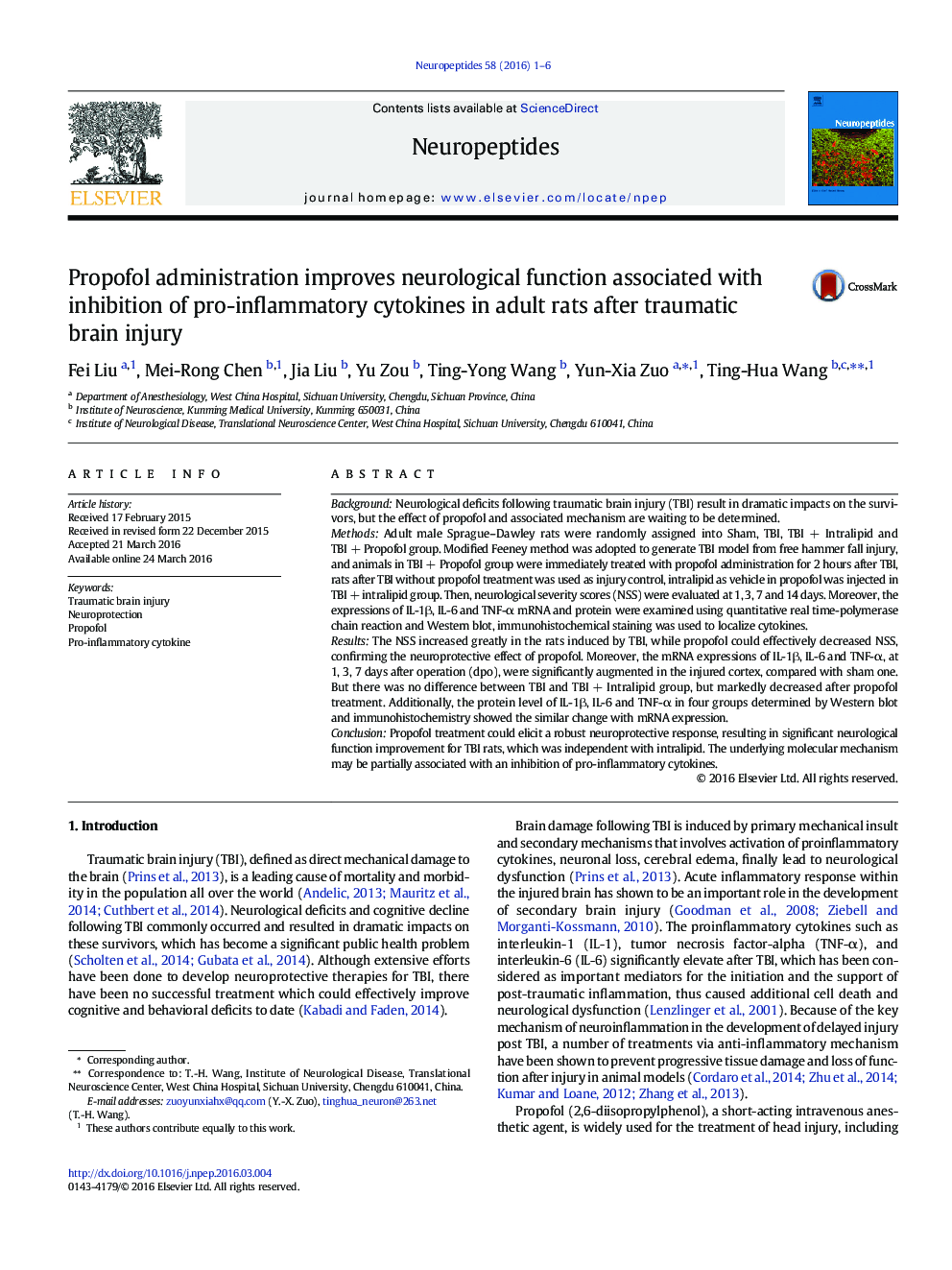| Article ID | Journal | Published Year | Pages | File Type |
|---|---|---|---|---|
| 5904045 | Neuropeptides | 2016 | 6 Pages |
â¢Propofol treatment after traumatic brain injury could effectively alleviated the impairment of neurological function.â¢The mRNA expressions and protein levels of IL-1β, IL-6 and TNF-α after traumatic brain injury could be inhibited by propofol.â¢The neuroprotective activity of propofol in TBI rats was independent on its vehicle solvent.
BackgroundNeurological deficits following traumatic brain injury (TBI) result in dramatic impacts on the survivors, but the effect of propofol and associated mechanism are waiting to be determined.MethodsAdult male Sprague-Dawley rats were randomly assigned into Sham, TBI, TBI + Intralipid and TBI + Propofol group. Modified Feeney method was adopted to generate TBI model from free hammer fall injury, and animals in TBI + Propofol group were immediately treated with propofol administration for 2 hours after TBI, rats after TBI without propofol treatment was used as injury control, intralipid as vehicle in propofol was injected in TBI + intralipid group. Then, neurological severity scores (NSS) were evaluated at 1, 3, 7 and 14 days. Moreover, the expressions of IL-1β, IL-6 and TNF-α mRNA and protein were examined using quantitative real time-polymerase chain reaction and Western blot, immunohistochemical staining was used to localize cytokines.ResultsThe NSS increased greatly in the rats induced by TBI, while propofol could effectively decreased NSS, confirming the neuroprotective effect of propofol. Moreover, the mRNA expressions of IL-1β, IL-6 and TNF-α, at 1, 3, 7 days after operation (dpo), were significantly augmented in the injured cortex, compared with sham one. But there was no difference between TBI and TBI + Intralipid group, but markedly decreased after propofol treatment. Additionally, the protein level of IL-1β, IL-6 and TNF-α in four groups determined by Western blot and immunohistochemistry showed the similar change with mRNA expression.ConclusionPropofol treatment could elicit a robust neuroprotective response, resulting in significant neurological function improvement for TBI rats, which was independent with intralipid. The underlying molecular mechanism may be partially associated with an inhibition of pro-inflammatory cytokines.
